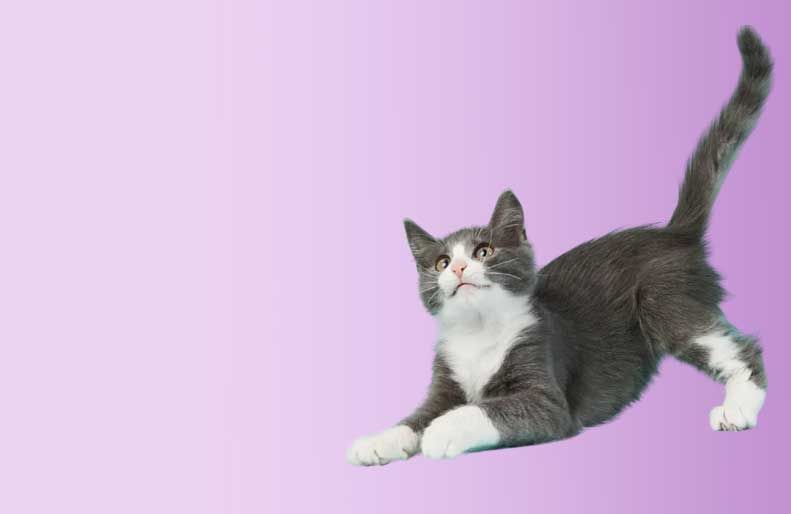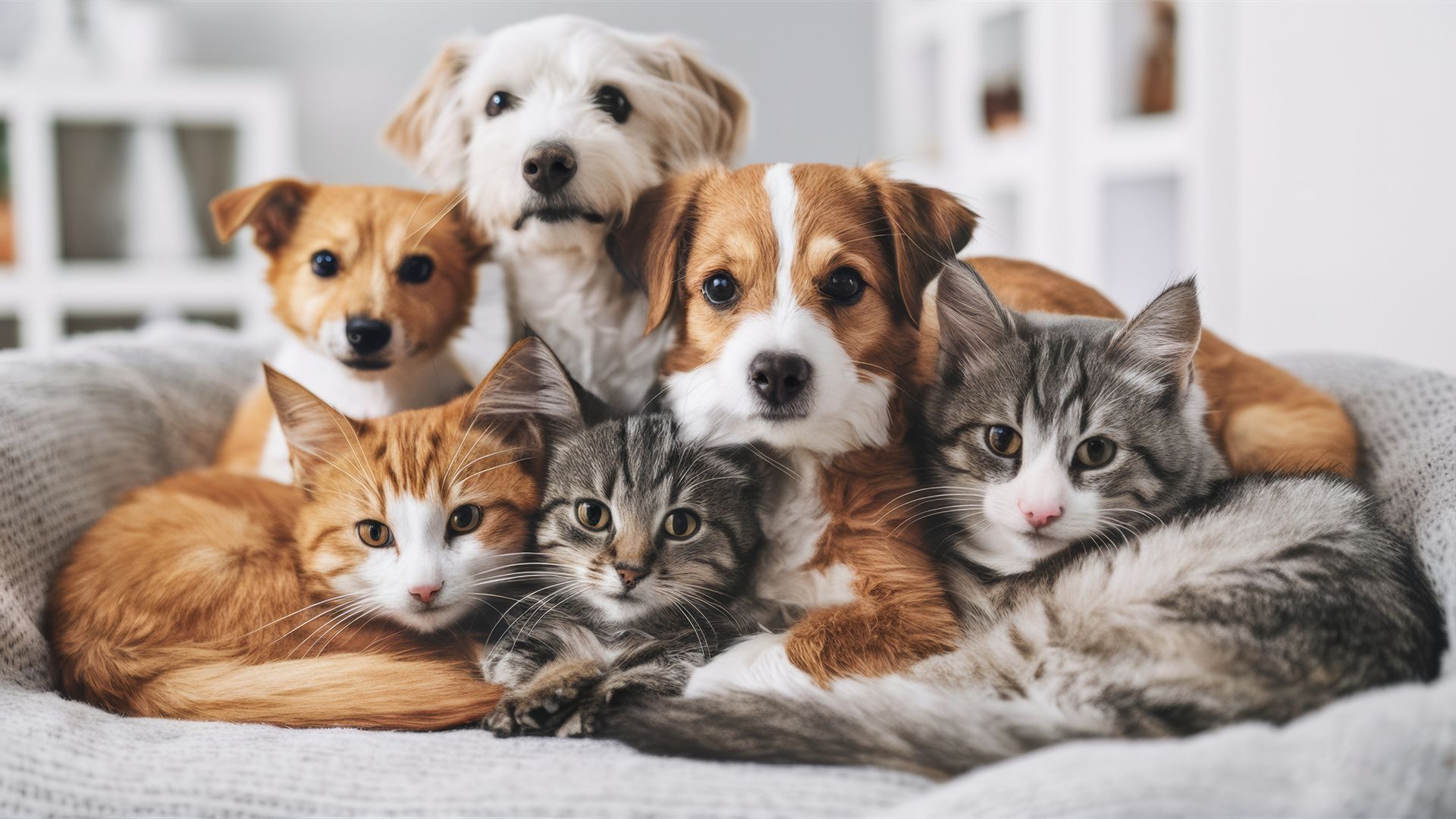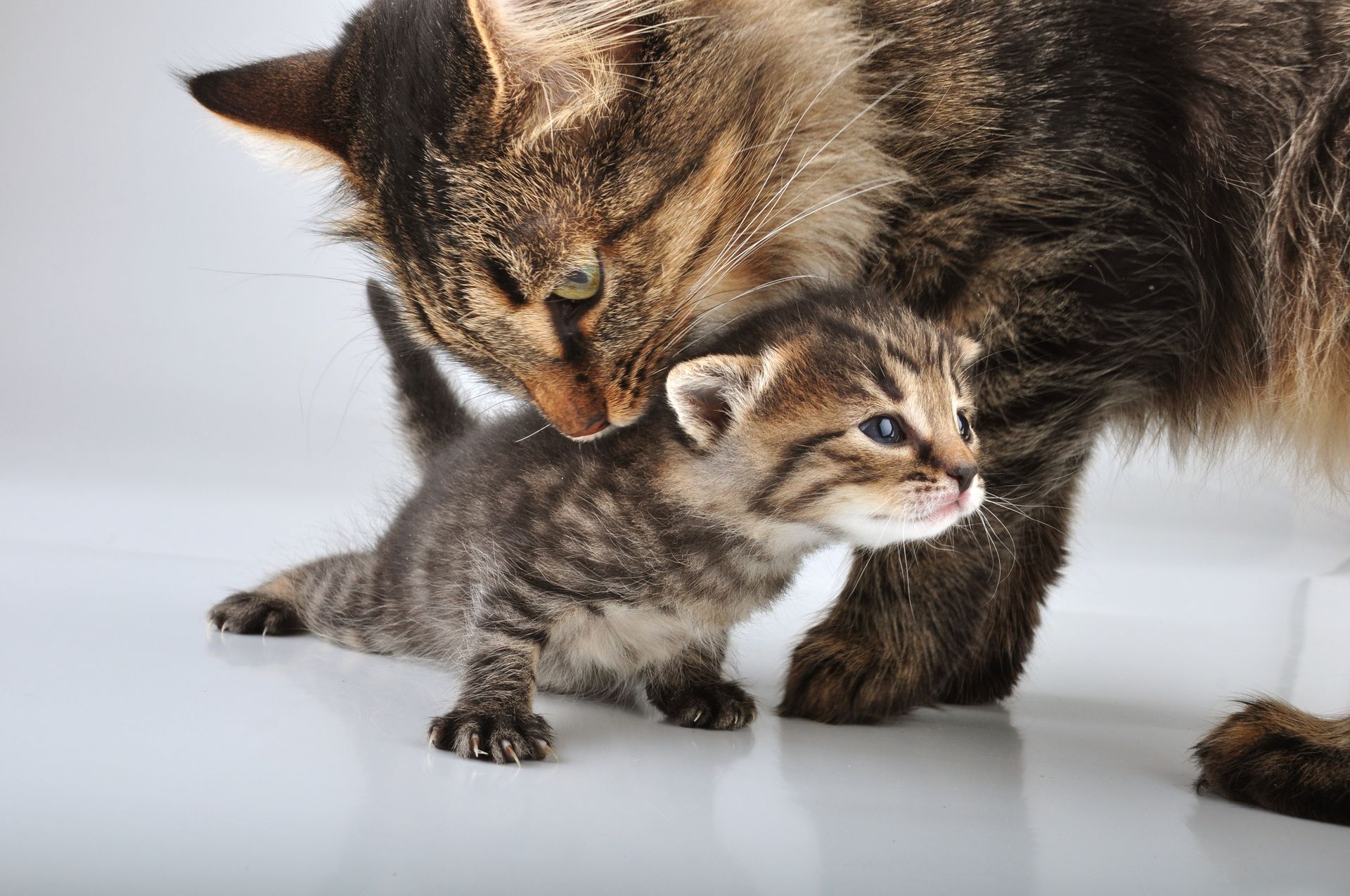How to keep your Cat’s Gut health in peak condition
In recent times, the role of the gut in overall health and wellbeing, for both humans and their pets, has become a high priority. When we talk about the gut, we are referring to the gastrointestinal system – the stomach, small intestine and colon – and since most of our immune system is located in this region, a bacterial imbalance could cause serious digestive upset.
Like humans, gut health plays a major role in feline health and happiness. Cats, too, have hundreds of varied single-celled microorganisms (bacteria and other microbes) in their digestive tract. This microbiome is crucial for aiding digestion, obtaining nutrients from food, protecting against germs, and breaking down meals to release energy and produce vitamins.
How does poor gut health affect your cat?
Ensuring proper gut health is an important issue for concerned cat owners. The steady rise in pet-related inflammatory diseases and chronic digestive disorders, such as feline inflammatory bowel disease (IBD), has become a major issue and can be attributed to an over-exposure of broad-spectrum antibiotics, antimicrobials, food additives, medications, and more.
However, there are several simple lifestyle changes which can help to improve and maintain your kitty’s gut health. It’s worth noting that when making changes to your cat’s diet and care, it’s always a good idea to touch base with your vet.
1. A well-balanced diet
Clearly, the first place to start when improving your cat’s gut health is to start with their stomach. There are certain foods which should be avoided such as garlic, chocolate or avocado which are toxic to cats, and other foods like cabbage and beans can cause uncomfortable bloating and wind.
Foods to avoid
- Raw meat and bones
- Chocolate
- Caffeinated drinks
- Eggs
- Milk and dairy products
- Alcohol
- Raw dough
- Grapes and raisins
Try to limit feeding your feline any human tidbits and be careful how much you feed them to avoid excessive weight gain. Also, high-carb cat food with ingredients like rice or potatoes often have microbiomes with excessive amounts of carb-loving bacteria which are linked to inflammation and more serious health issues.
Try opting for specially formulated cat foods which support natural defences and contain ingredients like heat-treated lactobacilli, which has been proven to help support natural antibody production in the intestinal tract, and Omega-6 acids which support healthy skin and a shiny coat.
2. Regular exercise
Despite not being as active as dogs, cats also need to have daily exercise routine. Not only does it stimulate digestion and regulate bowel movements, but it also helps to manage your kitty’s weight and stress levels.
Purchase some cute cat toys and engaging in special playtime sessions. This is a fun and easy way to keep your cat fit, active, engaged and purring. We recommend at least 20 minutes a day, split into two different sessions to boost energy levels and to strengthen the special bond between you and your feline fur baby.
3. Hydration
Cats are fussy about many things and water is no exception! Typically, they need about half a cup of water per 5 pounds of body weight each day, so if you have a 10-pound cat, they should be consuming about 1 cup of water a day.
To avoid dehydration, encourage your cat to drink by placing several bowls of fresh water in various locations around your home, just make sure they aren’t located near the litter box. The water must be fresh and changed at least twice a day.
Another way to incorporate more water into your cat’s diet is by giving them high-grade wet food, as wet or canned food contains about 80% water whereas dry food only contains about 10%. Also, if your cat only drinks running water from a tap, it’s worth investing in a kitty water fountain.
4. Grooming
Our precious kitties love to be pampered, so make the most of it and groom them regularly with a soft brush. Not only will you love hearing them purr, but by grooming them you will also help prevent them from ingesting large quantities of hair, which can cause constipation and affect their gut health. Plus, no one likes coughing up a hair ball!
5. Probiotics
Probiotics are live, beneficial bacteria that promote balance in the intestines. Like us, cats have their own unique microbiome, and with their digestive system making up around 80% of their immune defence, gut health should be a top priority.
When the bacteria in your cat’s microbiome is unbalanced, health issues like diarrhoea, diabetes, gum disease or skin problems can start to appear. IPROMEA’s Paw N’ Purr high-protein treats help keep your cat healthy through probiotics by keeping harmful pathogens at bay and is scientifically proven to support gut health.
Explore More






